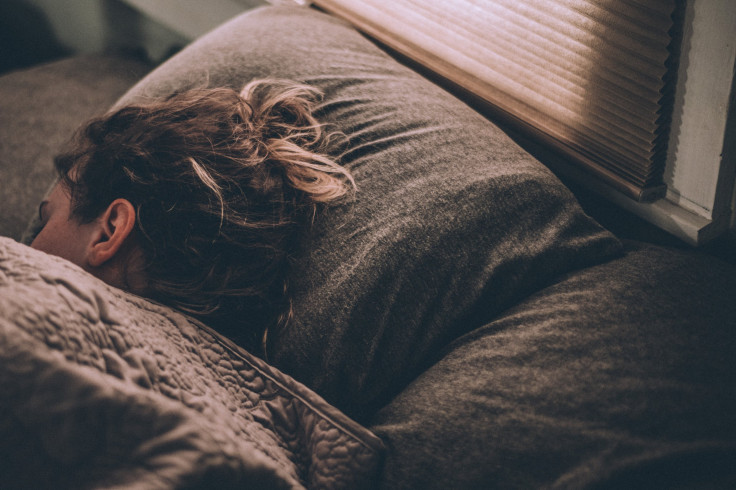Researchers Identify Ages When People Sleep The Least, And It's Not Early 20s
KEY POINTS
- The reduced duration of sleep may be affected by child care and work stress
- Eastern European countries slept the most; South East Asian countries the least
- Factors like culture and proximity to the equator could explain the difference
At what ages do people sleep the least across their lives? While some might think it is in early adulthood when 20-somethings are making the most of their youth and financial freedom, a new study has found it is, in fact, not the case. People sleep the least from their early thirties until their early fifties, according to researchers.
For the study, published in Nature Communications, researchers looked at the changes in people's sleep duration throughout their lives, and how they might differ across countries by assessing the data from 730,187 participants from 63 countries.
As the researchers explained, sleep is "essential for our well-being." How long people sleep varies from one person to another, but it's one of the factors that determine "many health and social domains."
"In particular, age has been shown to explain a large share of the variance in sleep duration within the general population, with children sleeping considerably longer and better than adults, and younger adults sleeping less than older ones," they wrote.
In their study, the researchers used data from the Sea Hero Quest project, which is a video game that was developed to assess people's navigation ability. It was designed to support Alzheimer's research, according to University College London (UCL), and it has contributed to "numerous studies...as a whole."
One of the questions asked of the players of the game, for instance, is about their sleep patterns. Through this, the researchers found that there were three "distinct" phases in humans' life courses—early adulthood (19-33 years old), mid-adulthood (34 to 53 years old) and late adulthood (54 years old and over).
While the youngest participants with the minimum age of 19 slept the most, sleep quality began declining as they progressed into early adulthood until 33 years of age. The decrease then slows down and plateaus, only for the sleep to increase again around the time they hit 53.
In other words, people slept the least starting from their early thirties until their early fifties, and this was the same for both women, across countries and even educational levels.
We analyzed the reported sleep duration from 730,187 participants across 63 countries and found 3 distinct phases in the adult human life-course: early adulthood (19-33yrs, sharp decrease), mid-adulthood (34-53yrs, slower decrease), and late adult-hood (54+yrs, re-increase).
— Antoine Coutrot - @antoinecoutrot@mas.to (@antoine_coutrot) December 13, 2022
2/6 pic.twitter.com/jajRpFiwld
"Such reductions in sleep to mid-life have previously been related to the demands of child-care and working life," the researchers wrote. "The increasing sleep reported after 53 years is likely related to a reduction in child-rearing responsibilities and alleviation of other factors driving the lower sleep in mid-life."
They also found some rather interesting differences in the sleep patterns of people across groups. For instance, although the world average sleep duration was 7.01 hours each night, women on average slept about 7.5 minutes longer than men.
And even though the age pattern was "remarkably stable across countries," there were still some geographical differences in the sleep duration of the participants per country.
Specifically, those in Eastern European countries slept the most, having an extra 20 to 40 minutes of sleep every night. On the other hand, those in South East Asian countries, including Indonesia, Malaysia and the Philippines, slept the least.
RT @kordinglab@neuromatch.social
— Prof Hugo Spiers @hugospiers@mastodon.sdf.org (@hugospiers) December 23, 2022
I guess it is us Europeans who are the sleepy ones.https://t.co/9HKDicvSpF pic.twitter.com/5ai7kSfcbt
Cultural norms may be behind these differences, the researchers said. For instance, some countries may frown upon taking naps in the workplace while others see it as normal.
The difference could also be explained, they said, by latitude, with those close to the equator tending to sleep less.
"Prior research has found that a country's average bedtime, but not average wake time, predicts sleep duration and that solar cues do influence sleep but are being attenuated in the real world," they wrote.
There was a positive correlation between reported sleep duration and latitude: the further away from the equator, the longer the average sleep duration. This relationship holds when controlling for GPD per capita, which is a negatively correlated with sleep duration.
— Antoine Coutrot - @antoinecoutrot@mas.to (@antoine_coutrot) December 13, 2022
5/6 pic.twitter.com/yqnc4XBN0U
While previous studies have looked at people's sleep patterns, the researchers said, these usually focused on only a specific age group, or particular sleep problem, or relied on smaller sample sizes.
"Previous studies have found associations between age and sleep duration, but ours is the first large study to identify these three distinct phases across the life course," study lead Professor Hugo Spiers of UCL, said in the university news release. "We found that across the globe, people sleep less during mid-adulthood, but average sleep duration varies between regions and between countries."
The study also shows how sleep researchers can utilize widespread video game use across the world to acquire data on larger and more diverse populations, the researchers said.

© Copyright IBTimes 2025. All rights reserved.






















